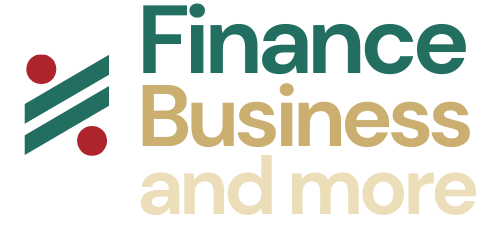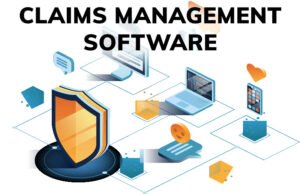Vendor policies are typically required by venues to cover liability for vendors selling, demonstrating or displaying their products for short-term periods at special events, malls, shopping centers or trade shows – including concessionaires, exhibitors and vendors working at these events or places that don’t fall within their ownership or long-term lease obligations. This may include concessionaires, exhibitors and vendors working at special events, malls or shopping centers as well as anywhere outside their owned or leased premises.
1. General Liability
Many trade shows, craft fairs and other venues require vendors to have liability insurance before setting up shop. Liability coverage protects a small business against costly lawsuits that could arise following an accident that causes injuries or property damages, thus protecting against costly legal claims that could arise out of unforeseen incidents such as accidents.
If someone slips and falls in your store or an on-site accident damages one of your client’s expensive pieces of furniture, you could be held liable for millions in damages. Without enough revenue or savings to cover large payouts, your small business could even become bankrupt.
General liability coverage typically protects against bodily injuries, property damage and legal fees up to an aggregate limit of $1 Million per policy term. You can bundle it with commercial property and business owners policy (BOP) coverage for even more protection at a more economical cost.
2. Product Liability
Product Liability insurance protects your business against lawsuits for bodily injuries or property damages caused by products you manufacture, distribute, sell or repair. It can either be purchased as an independent policy or be included as part of a general commercial liability plan.
Product liability claims often result from design flaws or manufacturing mistakes; for instance, when a supplement maker mishandles its formulation and it causes adverse reactions in consumers. They may also occur as the result of cheaper ingredients being added by your supplier that compromise the quality of your finished product or incorrect labeling or instructions being included with it.
Remind yourself that vendor product liability policies typically contain a list of items covered under them, meaning any new products you introduce into your business or repair may not be covered until they are added to the “insured products” list. If your business routinely uses different vendors for its products, make sure they all offer appropriate insurance coverage before entering contracts with them and also keep certificates on hand in case customers or clients require proof.
3. Cyber Liability
Cyber attacks and data breaches have become more frequent due to malicious hackers or the growing sophistication of AI systems, leading to cyber insurance coverage for any company collecting, transmitting or receiving personal customer data. Any business collecting, sending or receiving private customer information should strongly consider taking out cyber coverage for protection.
A cyber liability policy typically provides coverage for expenses related to data breaches, including public relations and reputational damage, credit monitoring and notification costs, legal fees, fines and penalties, loss of funds from funds transfer systems and ransomware demands. Some policies even offer technology errors and omissions coverage which provides legal defense from lawsuits alleging failure to prevent cybersecurity risks on clients’ systems.
Small businesses that rely heavily on sensitive information and/or online transactions are especially susceptible to cyber attacks. Some boards or investors may require them to secure coverage while others can benefit even if they follow all cybersecurity best practices. Some policies include deductible payments that the insured must make before losses will begin being compensated, while others have an aggregate limit which specifies how much will be covered during its course.
4. Business Interruption
Business income insurance (BI), otherwise known as business interruption coverage, reimburses your company for lost revenue while your operations are suspended or hindered. Policies usually cover expenses such as rent, employee wages, taxes and loan payments – making BI an essential insurance policy for businesses dependent upon physical locations for operations.
To qualify for a property damage claim with your BI policy, there must be direct physical damage that requires repairs. Most BI policies have a 48 to 72 hour waiting period before beginning payments for lost income and restoration period coverage extensions are activated.
When selecting a business insurance provider, ensure they possess both a solid financial rating and customer service reputation. Chubb, for example, boasts an A++ issuer credit rating from AM Best as well as offering off-premise utility services coverage with their policy limits ranging up to $100,000. Also ask about their claims process or special considerations that might impact your company if an occurrence should arise.
5. Commercial Auto
Food truck vendors or transportation services that rely on vehicles, like food trucks or transportation services, require commercial auto insurance policies in order to protect themselves against third-party accidents. Such policies provide coverage against bodily injury and property damage from an auto accident as well as repairs costs. They may also include roadside assistance coverages such as towing and labor fees reimbursement rental reimbursement downtime loss theft protection protection for their fleet of vehicles. Several policies also offer hired and non-owned coverage which helps businesses who employ employees who use personal cars or trucks for business purposes – providing extra peace of mind for such businesses whose employees use personal cars or trucks for business purposes.
Progressive is one of the top commercial auto insurers in the US, offering an array of coverage options and discounts tailored to any business. Their online policy management and purchasing system makes purchasing policies simple for businesses of any size, while adding or subtracting vehicles easily. Among their popular coverages include bodily injury, medical payments, uninsured/underinsured motorist, collision, comprehensive as well as offering coverages specifically for cars, light trucks vans SUVs heavy trucks as well as digital certificates of insurance that can be shared digitally.



